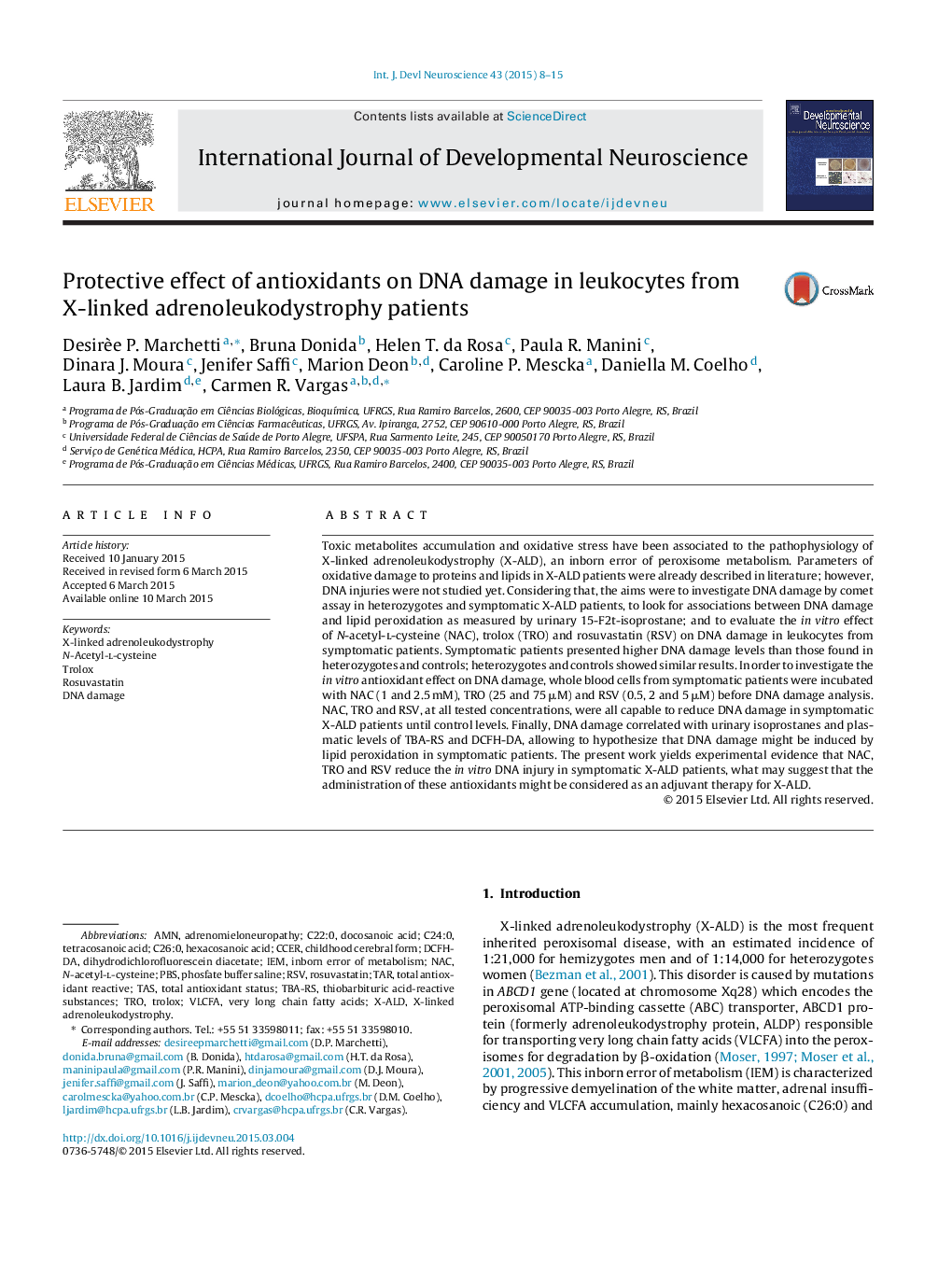| کد مقاله | کد نشریه | سال انتشار | مقاله انگلیسی | نسخه تمام متن |
|---|---|---|---|---|
| 2785708 | 1568388 | 2015 | 8 صفحه PDF | دانلود رایگان |

• Heterozygotes for X-ALD did not present DNA damage in leukocytes.
• Symptomatic patients for X-ALD presented DNA damage in leukocytes.
• NAC, TRO and RSV were able to reduce DNA damage in symptomatic patients.
• DNA damage was correlated with lipid peroxidation parameters in symptomatic patients.
Toxic metabolites accumulation and oxidative stress have been associated to the pathophysiology of X-linked adrenoleukodystrophy (X-ALD), an inborn error of peroxisome metabolism. Parameters of oxidative damage to proteins and lipids in X-ALD patients were already described in literature; however, DNA injuries were not studied yet. Considering that, the aims were to investigate DNA damage by comet assay in heterozygotes and symptomatic X-ALD patients, to look for associations between DNA damage and lipid peroxidation as measured by urinary 15-F2t-isoprostane; and to evaluate the in vitro effect of N-acetyl-l-cysteine (NAC), trolox (TRO) and rosuvastatin (RSV) on DNA damage in leukocytes from symptomatic patients. Symptomatic patients presented higher DNA damage levels than those found in heterozygotes and controls; heterozygotes and controls showed similar results. In order to investigate the in vitro antioxidant effect on DNA damage, whole blood cells from symptomatic patients were incubated with NAC (1 and 2.5 mM), TRO (25 and 75 μM) and RSV (0.5, 2 and 5 μM) before DNA damage analysis. NAC, TRO and RSV, at all tested concentrations, were all capable to reduce DNA damage in symptomatic X-ALD patients until control levels. Finally, DNA damage correlated with urinary isoprostanes and plasmatic levels of TBA-RS and DCFH-DA, allowing to hypothesize that DNA damage might be induced by lipid peroxidation in symptomatic patients. The present work yields experimental evidence that NAC, TRO and RSV reduce the in vitro DNA injury in symptomatic X-ALD patients, what may suggest that the administration of these antioxidants might be considered as an adjuvant therapy for X-ALD.
Journal: International Journal of Developmental Neuroscience - Volume 43, June 2015, Pages 8–15